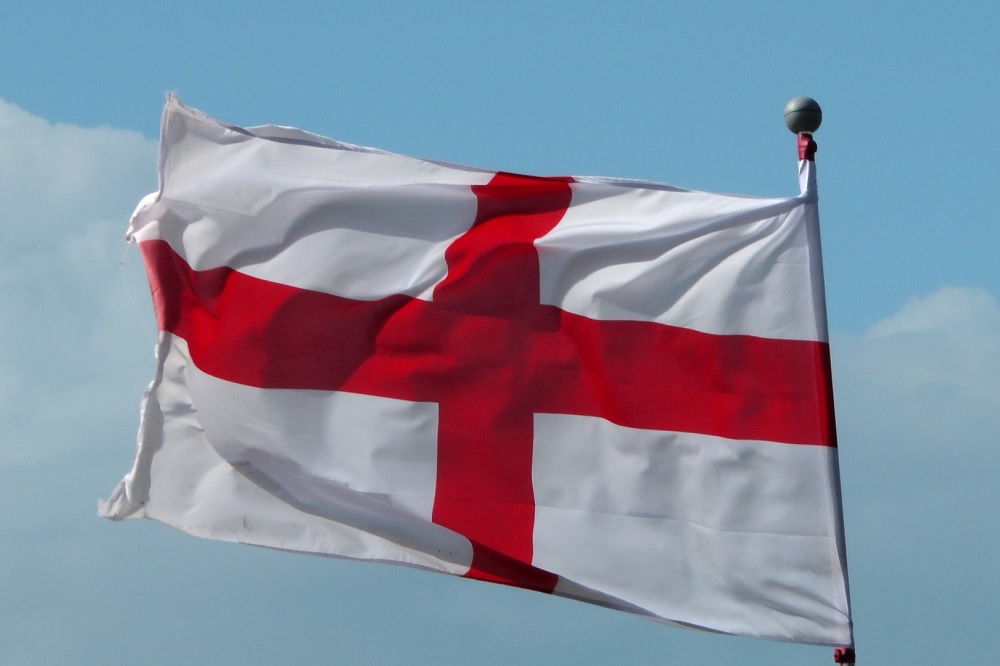‘Union may not survive rise of English nationalism’, says former Newsnight presenter

The union “may not survive the rise of English nationalism”, according to a former Newsnight presenter.
Gavin Esler made the claim in a column for The National about his new book How Britain Ends, where he suggested that it was the driving force behind Brexit.
Esler, who is Chancellor of the University of Kent, also claimed what he called the rise of Englishness “appears in part to be a reaction against the Welsh assembly and an increasingly assertive Scottish parliament”.
The Scottish journalist suggested that English Conservative voters “prioritised leaving the European Union over the unity of the United Kingdom”, and that although there are growing signs of English nationalism, there is “no clarity about what it means, beyond vacuous wittering about ‘taking back control’”
He said: “What kind of England do English people actually want? Scots, Irish and Welsh people have for decades considered their options.
“In England there are signs of growing English nationalism, but no clarity about what it means, beyond vacuous wittering about ‘taking back control’, among people who never truly had much control anyway.
“And whatever Scotland, Wales or Northern Ireland decides, England will always be our neighbour, most important trading partner, and, one must hope, friend.
“England is 84% of the UK’s population, a really big elephant. But when I returned from being a foreign correspondent and spent much more time travelling from Shetland to Cornwall, Belfast and Cardiff to Kent, it was obvious things were changing.
“Brexit was one result, with England determined to quit the EU, Scotland and Northern Ireland equally determined to stay.
“It was like an old joke. An Englishman, Scotsman and Irishman go to the pub. The Englishman wants to go home – so everyone has to leave.
“It slowly occurred to me that for four centuries the United Kingdom had survived Scottish, Welsh and even violent Irish nationalism, but may not survive the rise of English nationalism.
“And beyond the rather sad slogans that ‘we hold all the cards’ and “they need us more than we need them” the puzzle remained. What do the people of England really want?”
‘Striking’
He added: “In one striking 2019 poll organised by the Conservative donor Lord Ashcroft, three quarters of English Conservative voters prioritised leaving the European Union over the unity of the United Kingdom.
“In the 2016 Brexit vote these English Conservatives were lying back and thinking of England, not of the UK.
“They were so desperate to leave the EU – an arrangement which had lasted almost 50 years – that they were prepared to break up that other Union, the United Kingdom, which had lasted four centuries.
“In January 2012, the Institute for Public Policy Research published a study called The dog that finally barked: England as an emerging political community.
“The report argued ‘that an emerging English political identity may over time come to challenge the institutions and practices of the UK more profoundly than anything happening in the so-called Celtic fringe, even Scottish independence’.
“The English historian David Edgerton wryly suggests that English people often regard nationalism as an affliction suffered by other people.
“He says that ‘nationalism in British parlance was the doctrine which encapsulated the dubious claims of natives, whether Indian, African, Irish, Scottish, Welsh’.
“The English are exceptional in not being burdened with such ‘dubious claims’, although as Edgerton implies, denying their own nationalism is itself a very English way of being nationalistic.
“The rise in ‘Englishness’ appears in part to be a reaction against the Welsh assembly and an increasingly assertive Scottish parliament.
“David Edgerton, writing in The New York Times (January 2020) puts it this way: ‘Freed from the grip of the decayed British nation and British state, England could finally be done with its delusions of grandeur. Fanciful beliefs about British importance in the world would crumble. England would be only around the eighth-largest economy in the world. And it would probably have to give up its nuclear weapons — the United Kingdom’s nuclear submarine base is in Scotland. England need not be, as many fear, a rump United Kingdom, parochial, perhaps even irredentist. Less cocksure and more understanding of its real place in the world, it may soon rethink its hostility to the European Union.’”
Support our Nation today
For the price of a cup of coffee a month you can help us create an independent, not-for-profit, national news service for the people of Wales, by the people of Wales.





